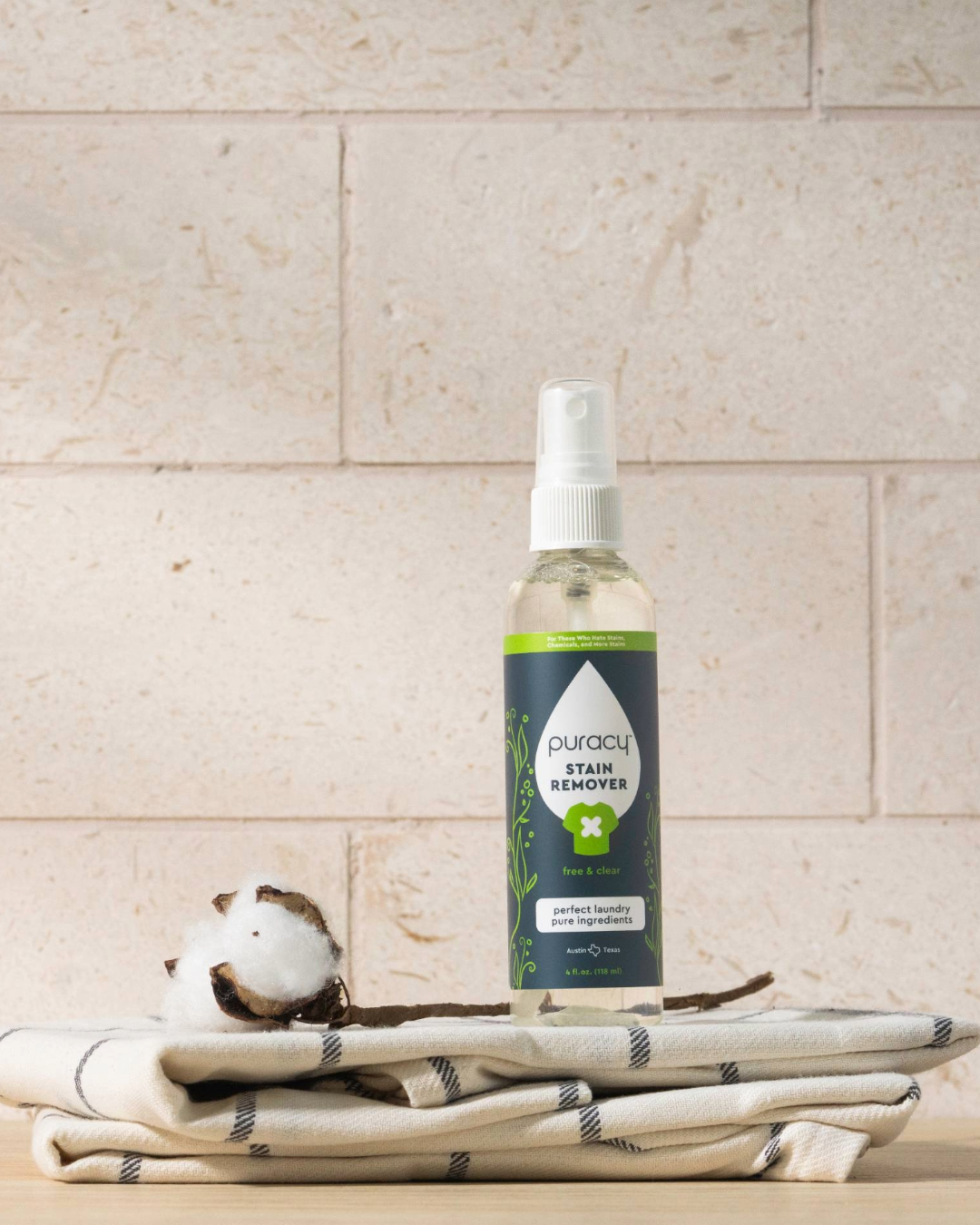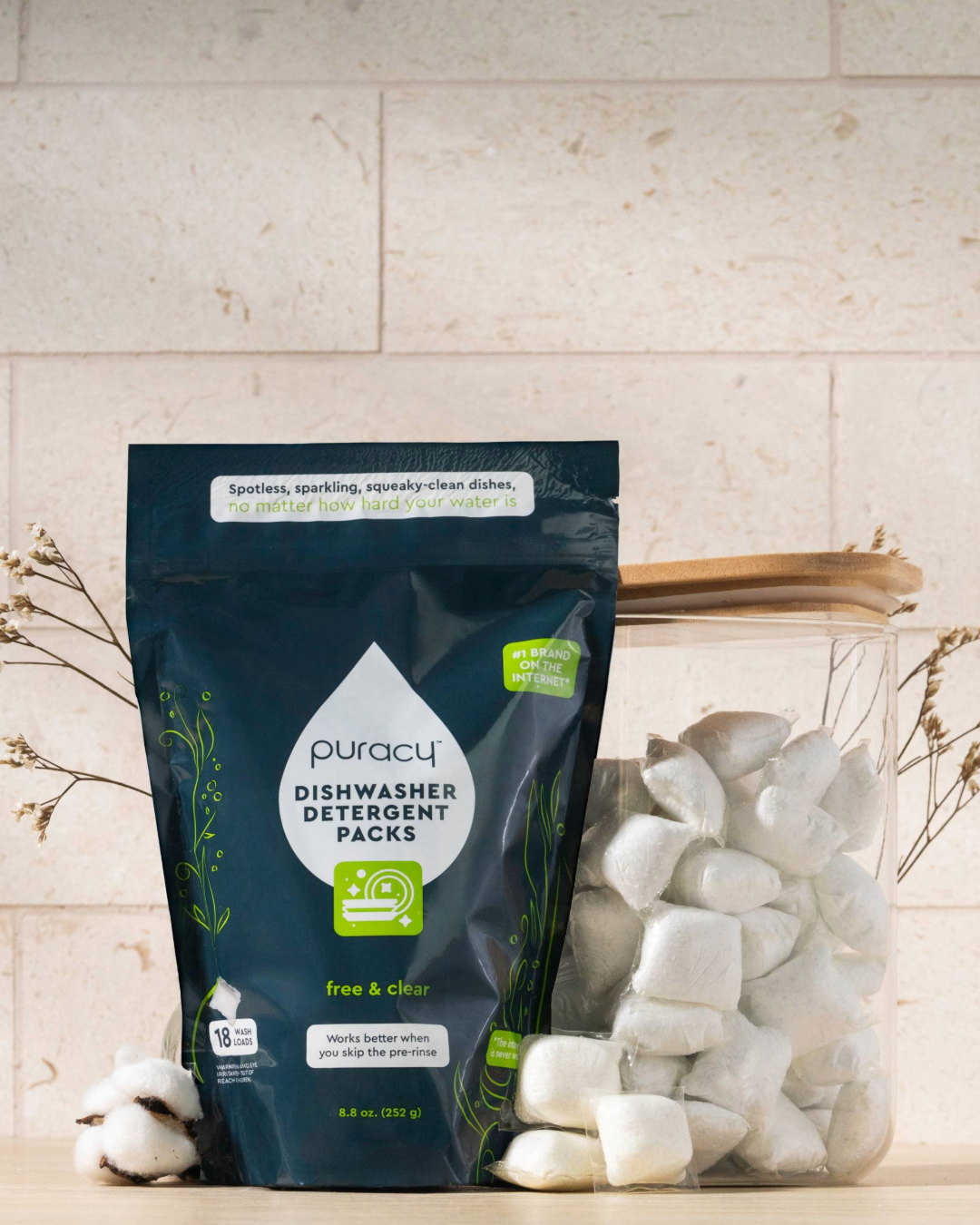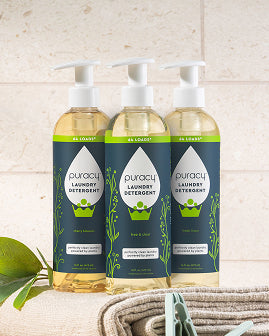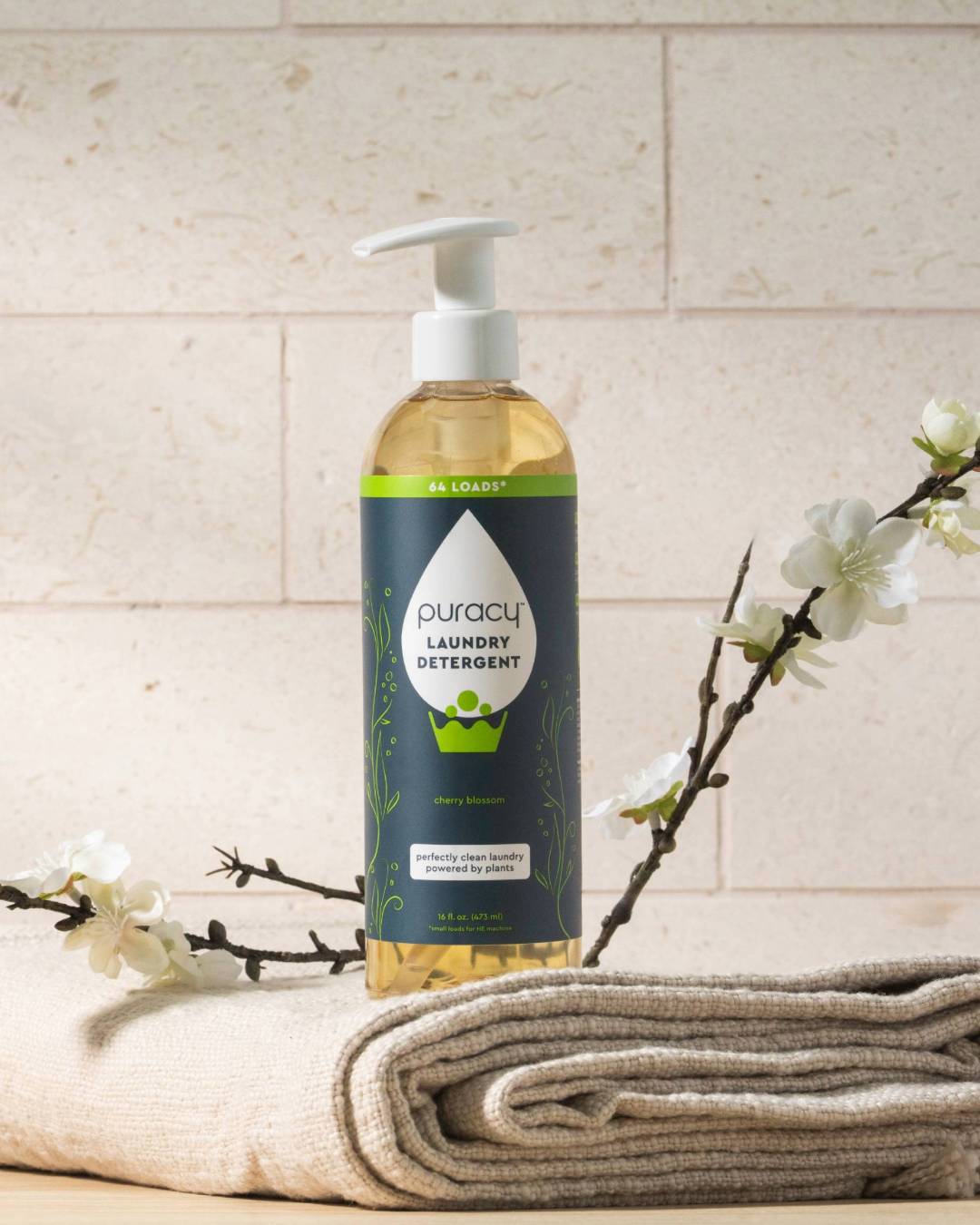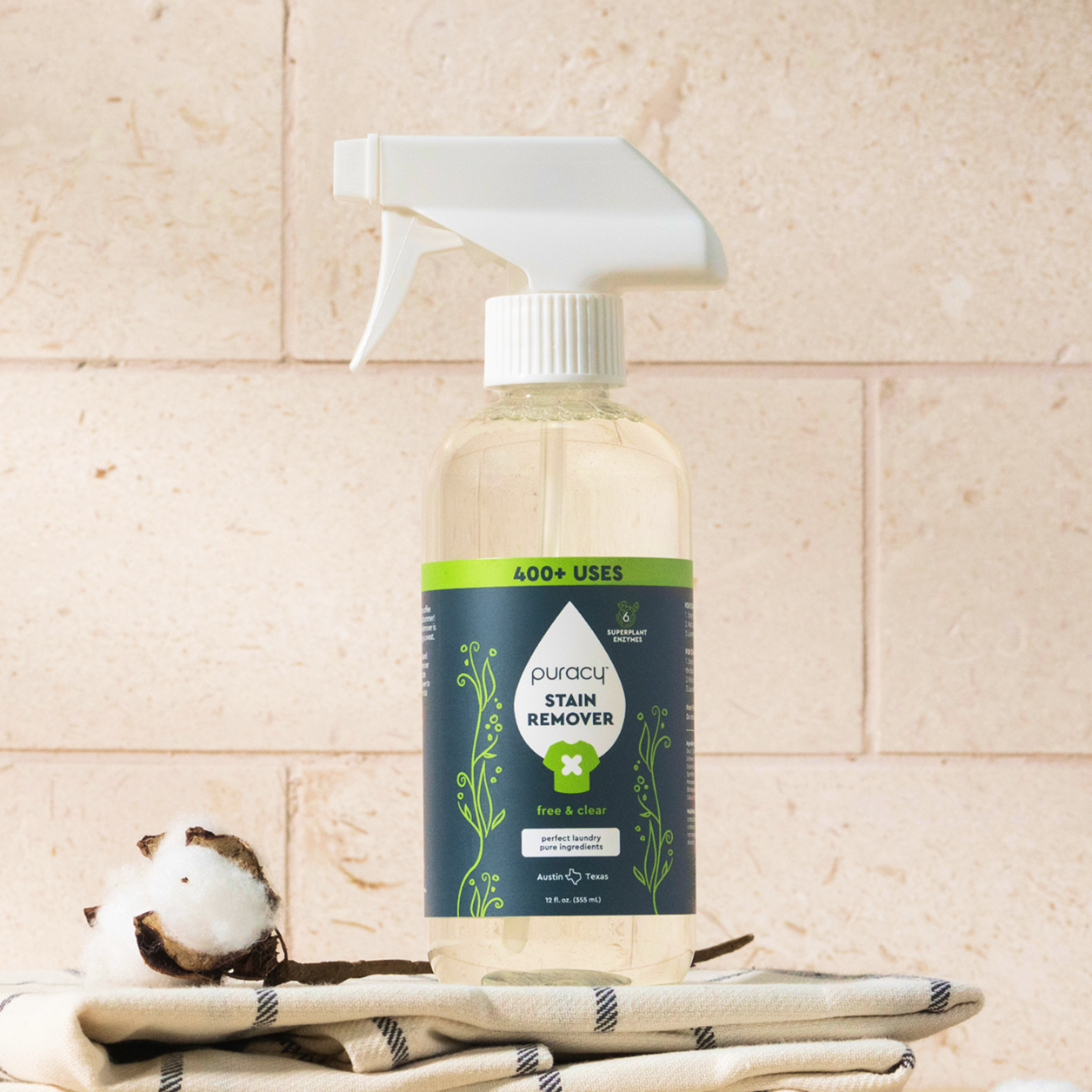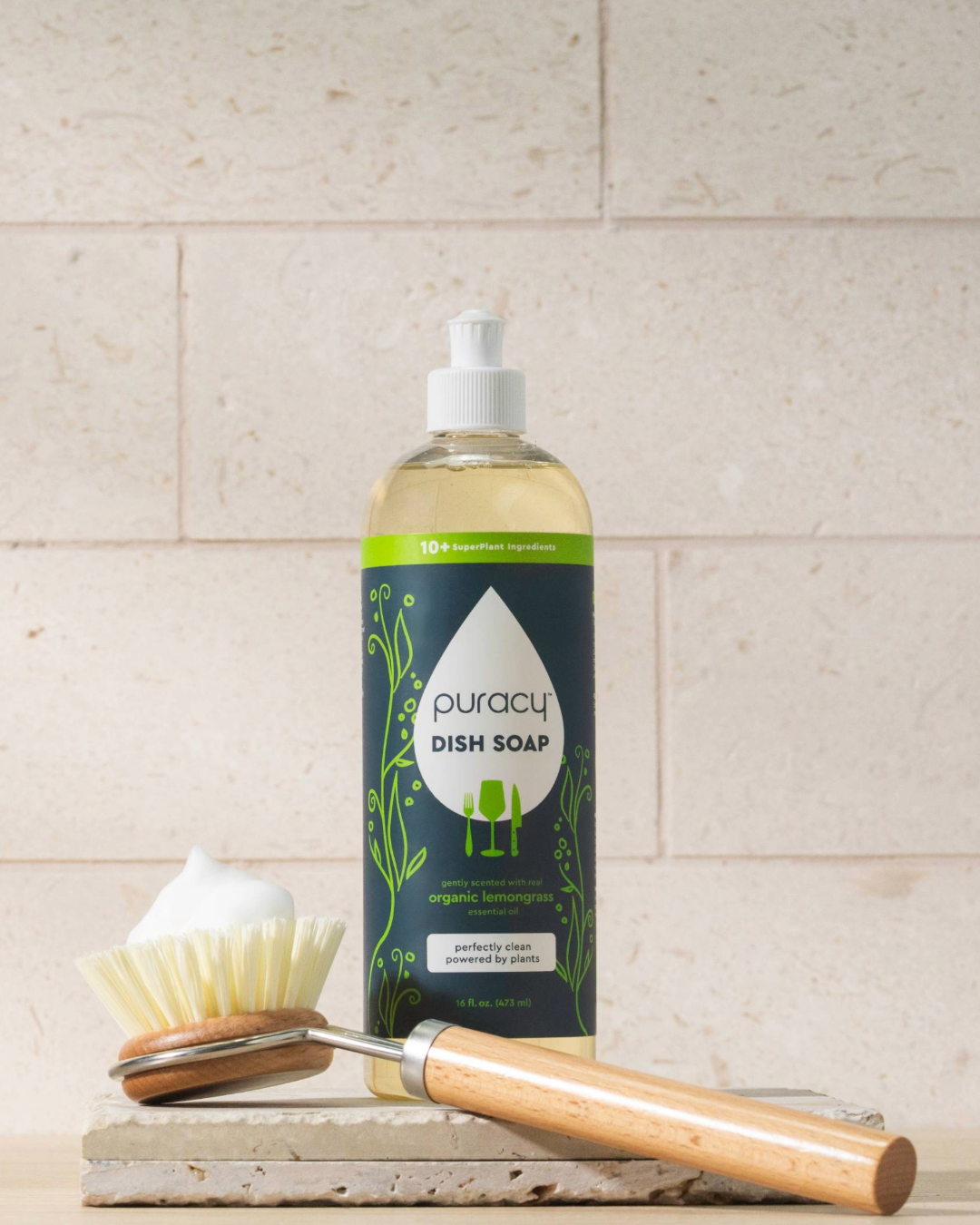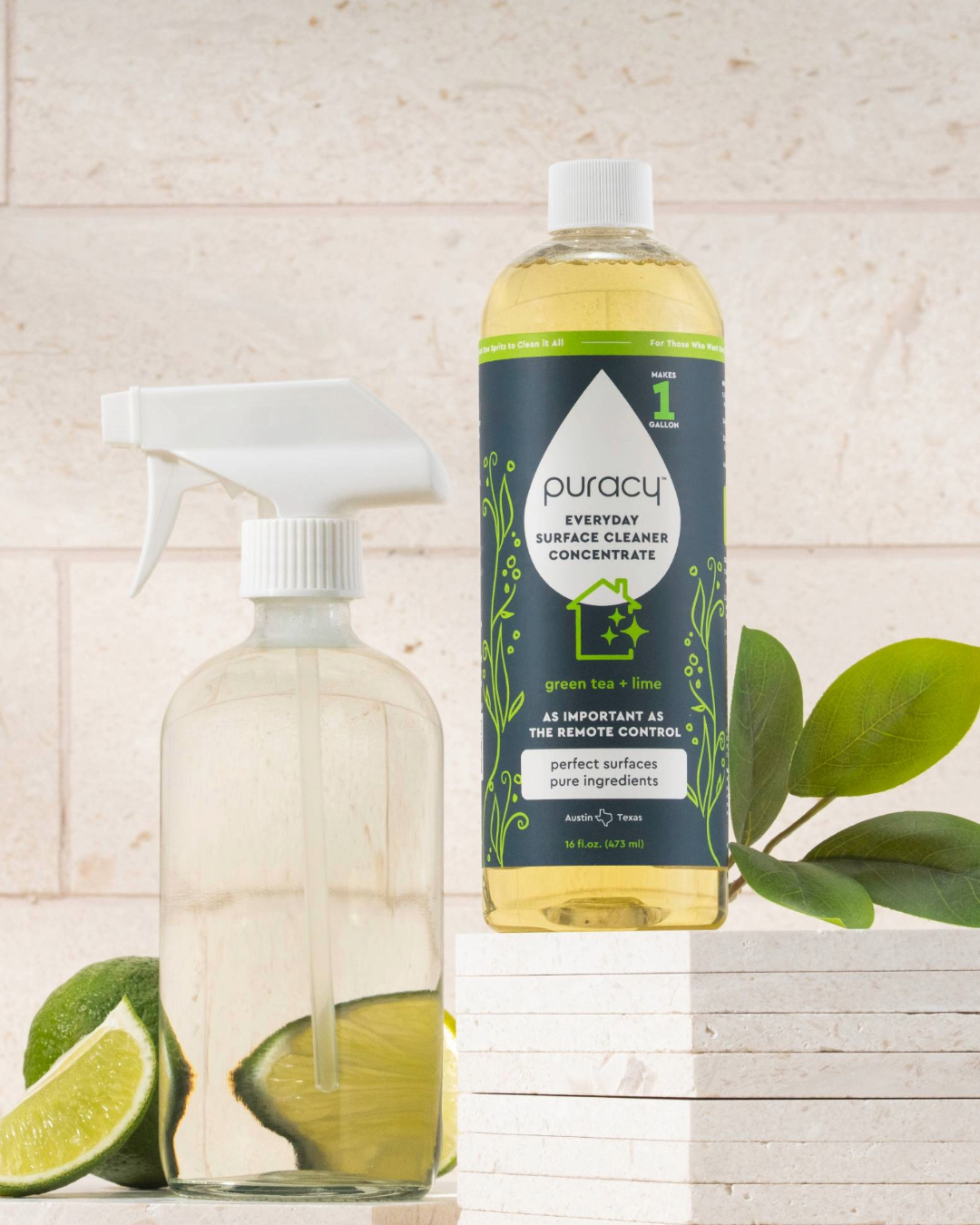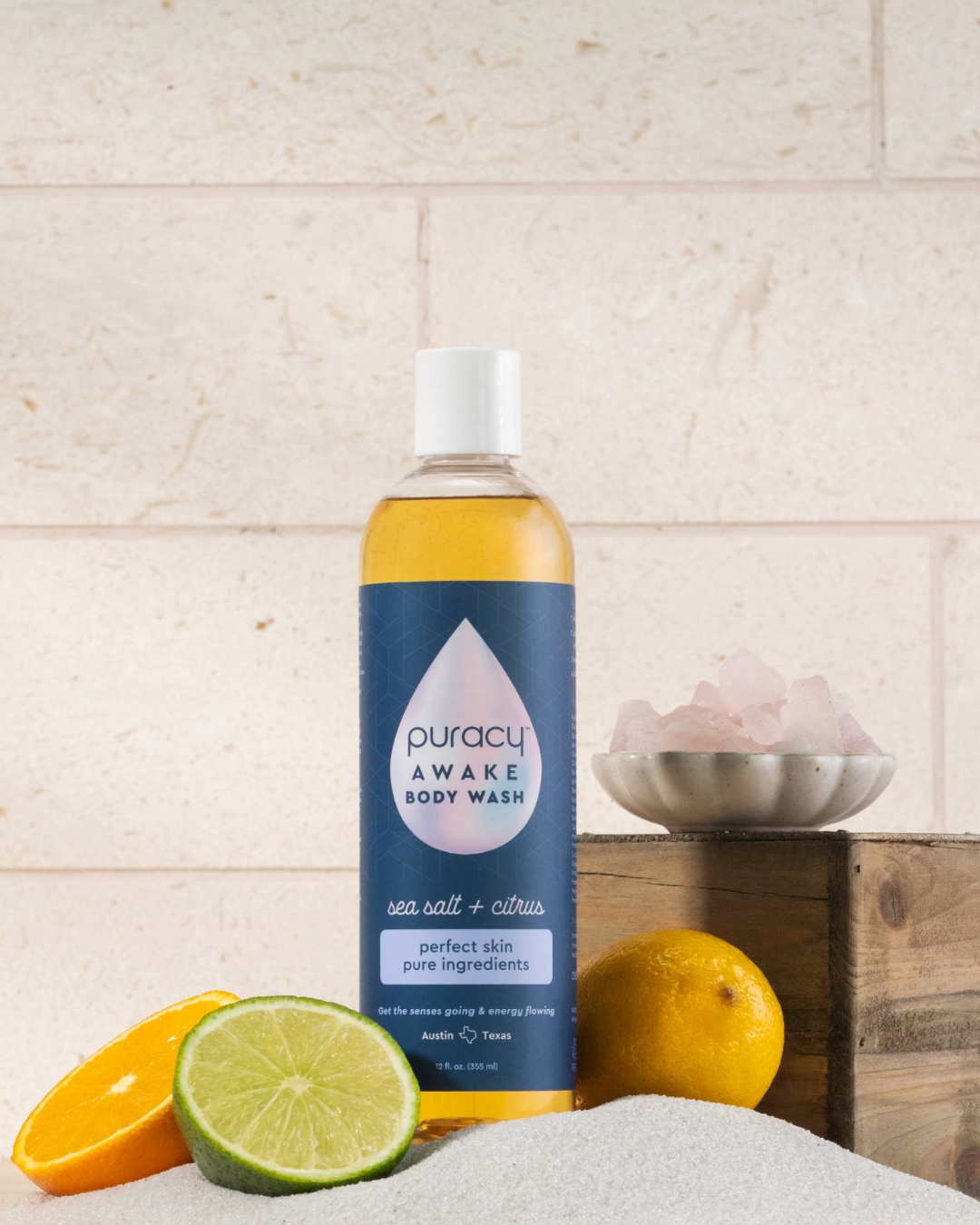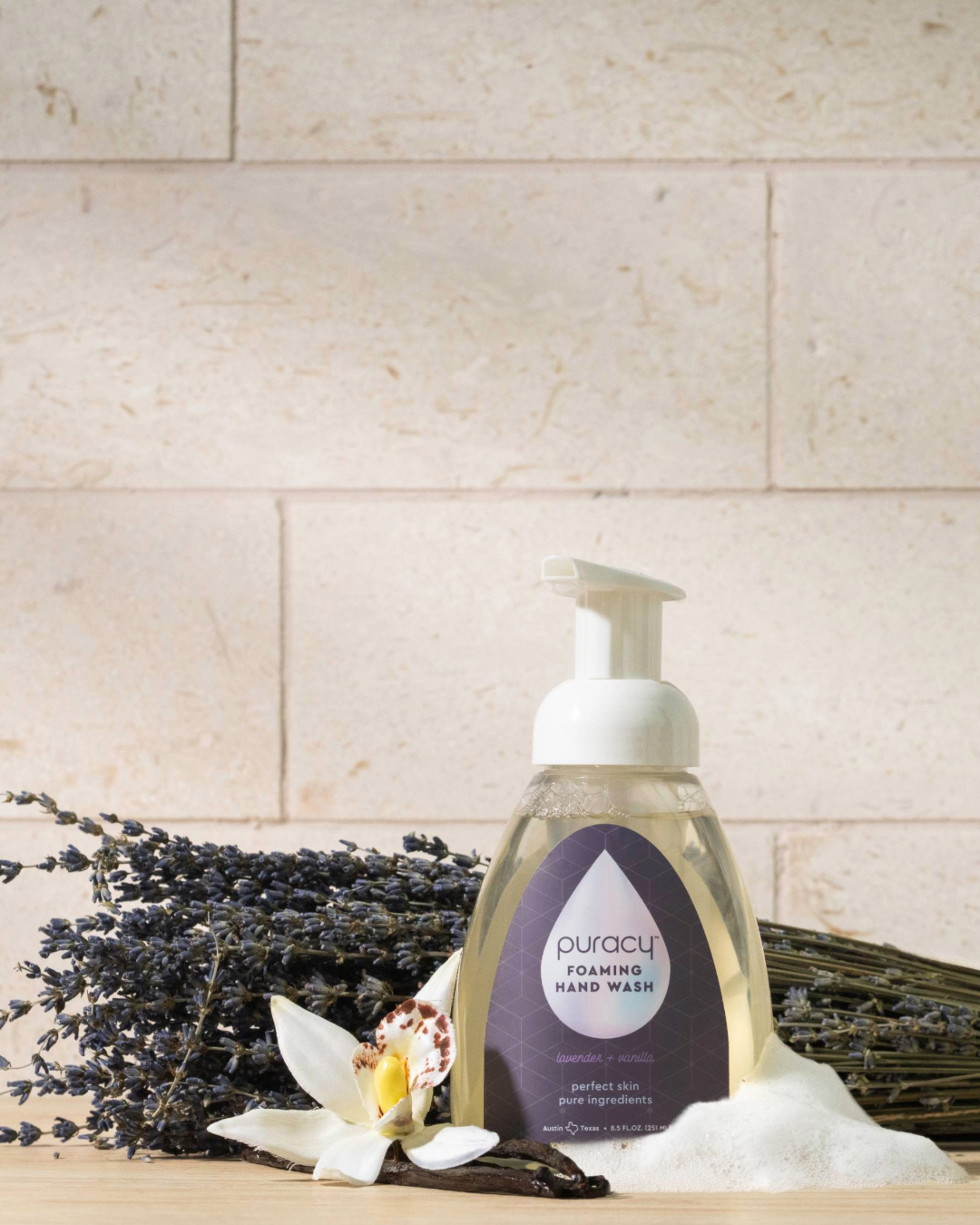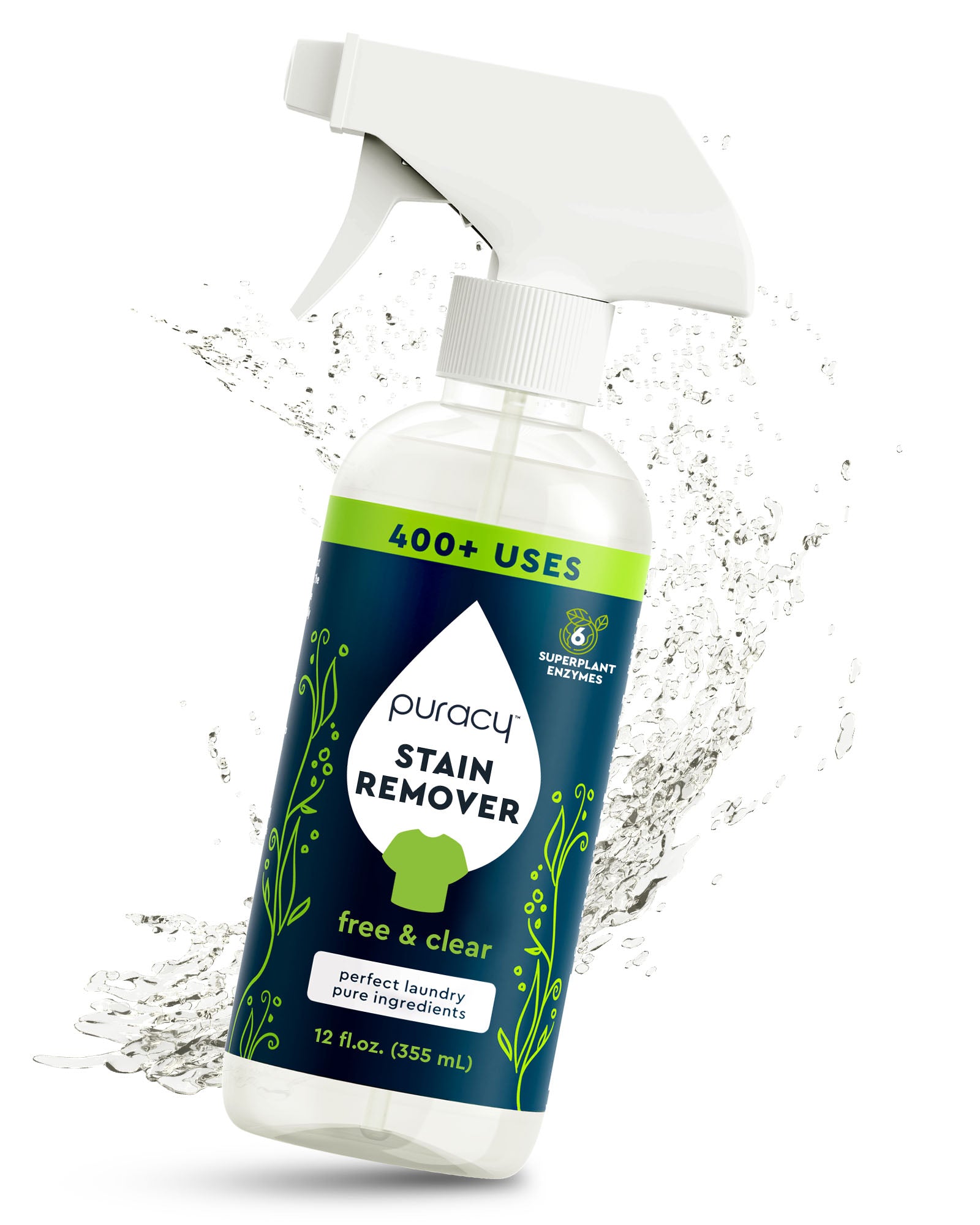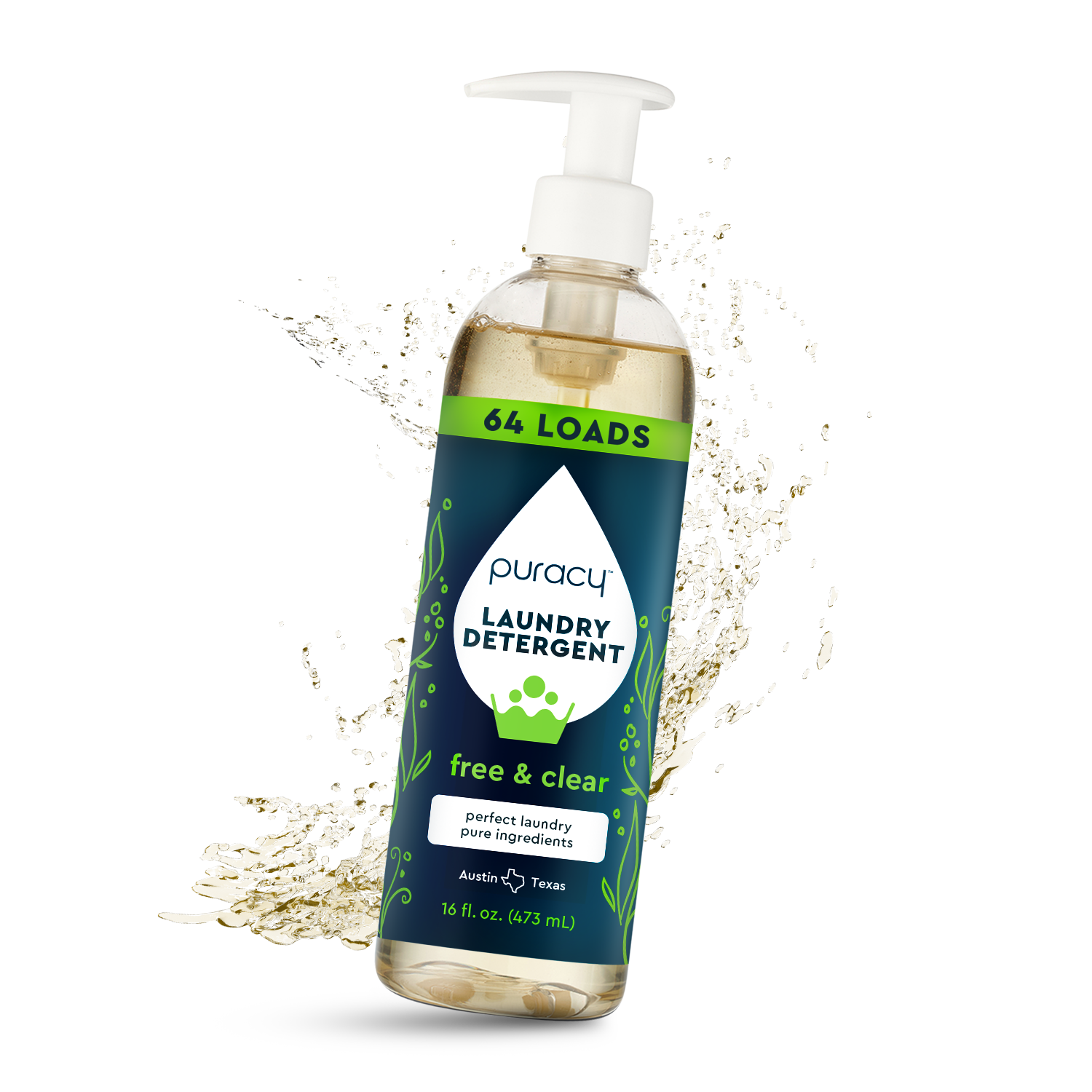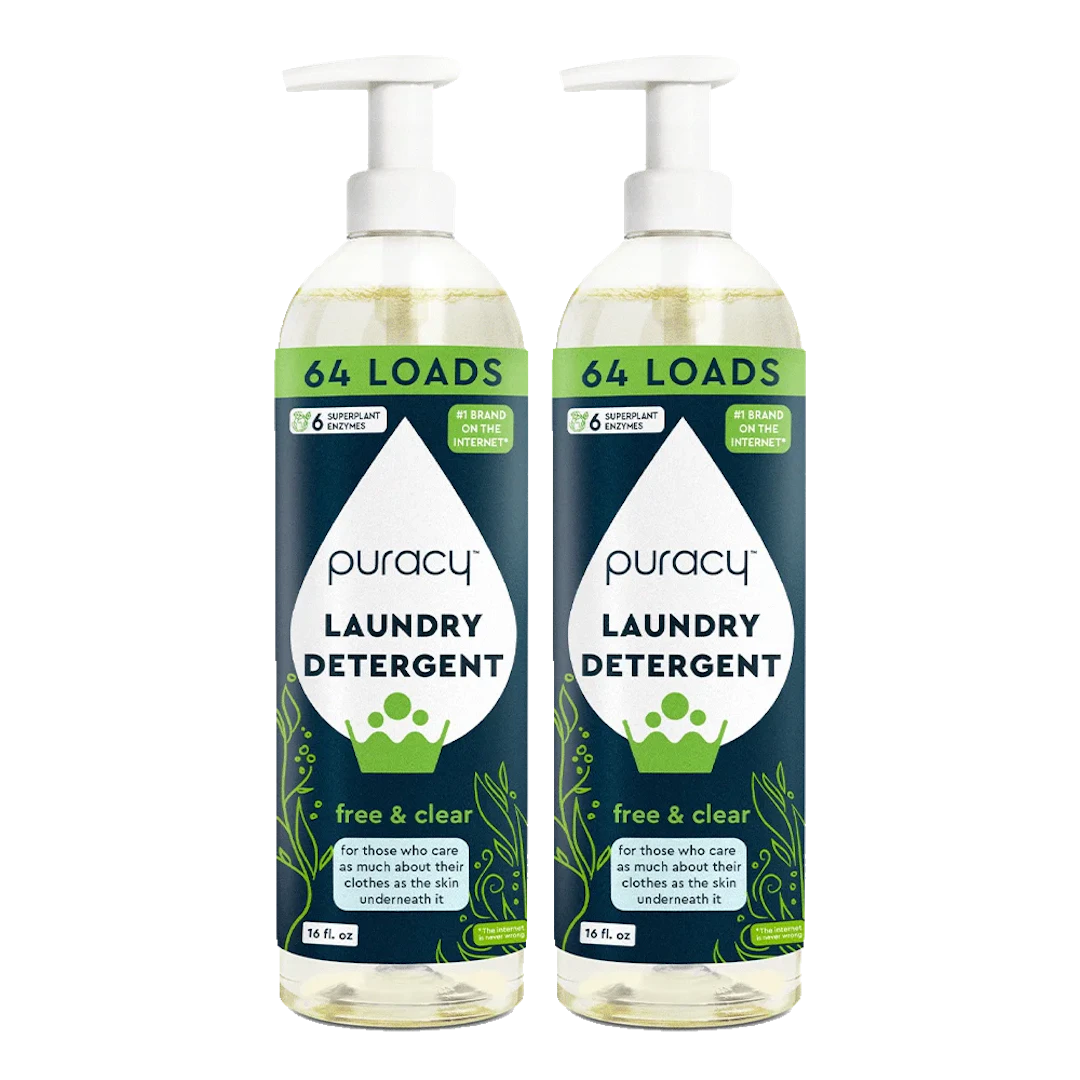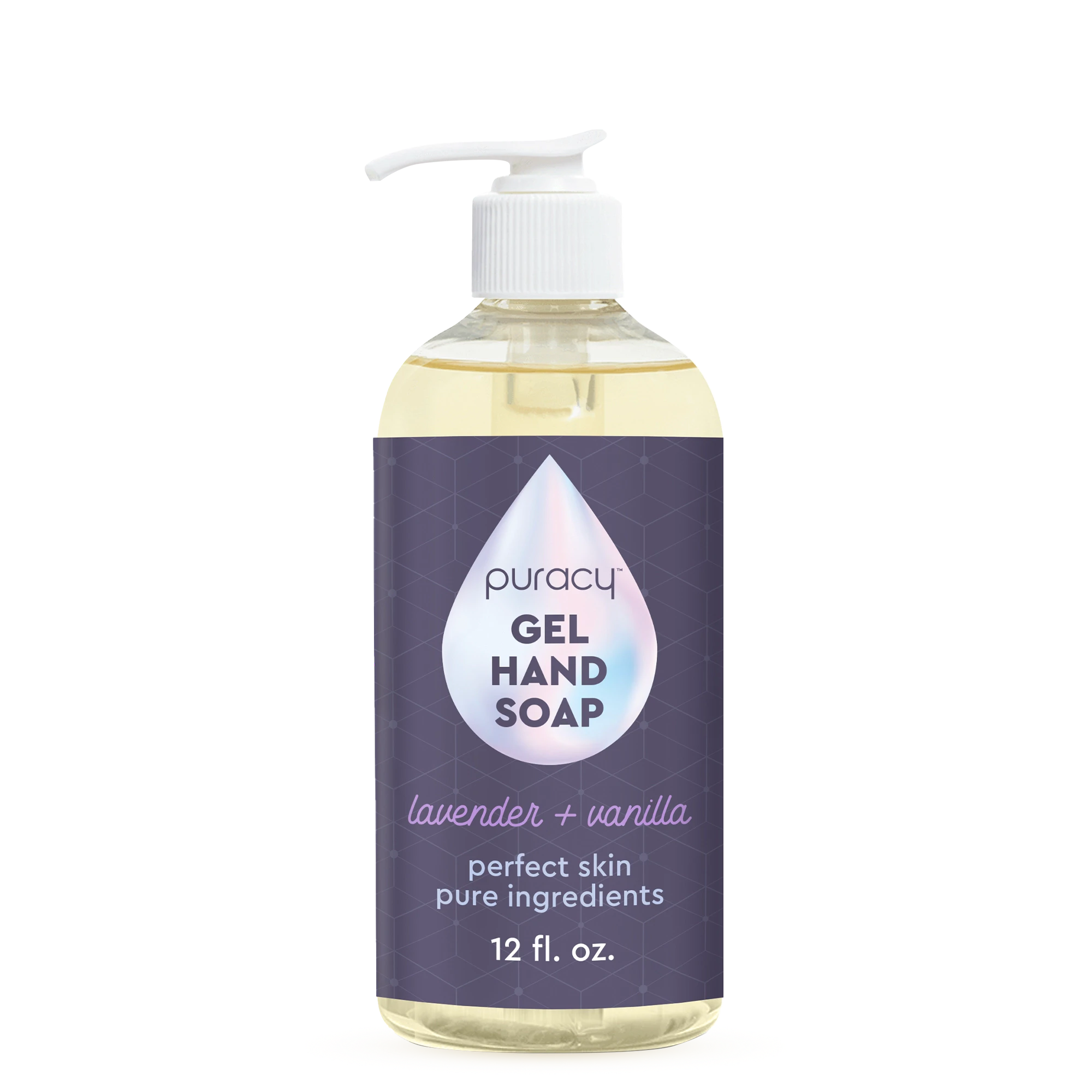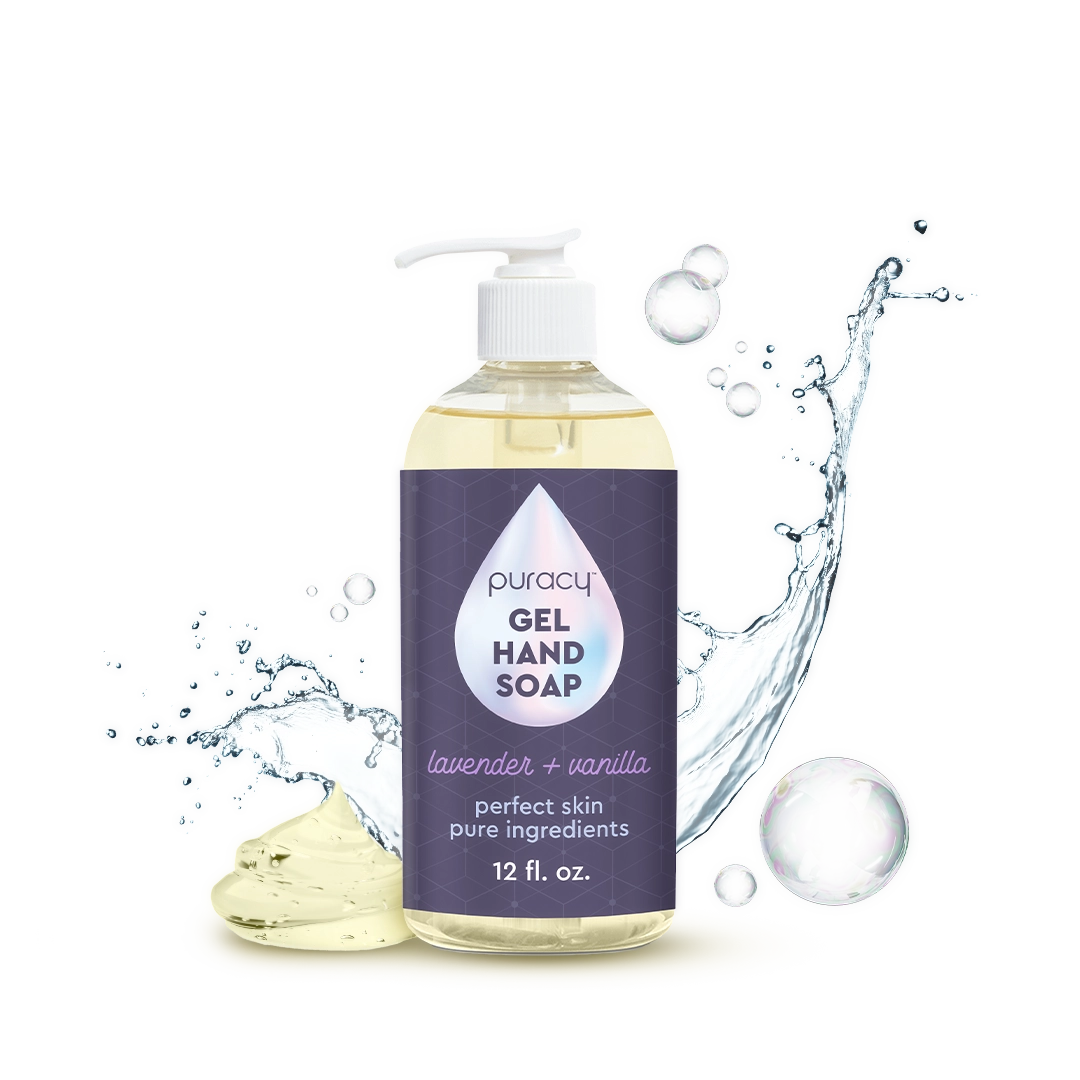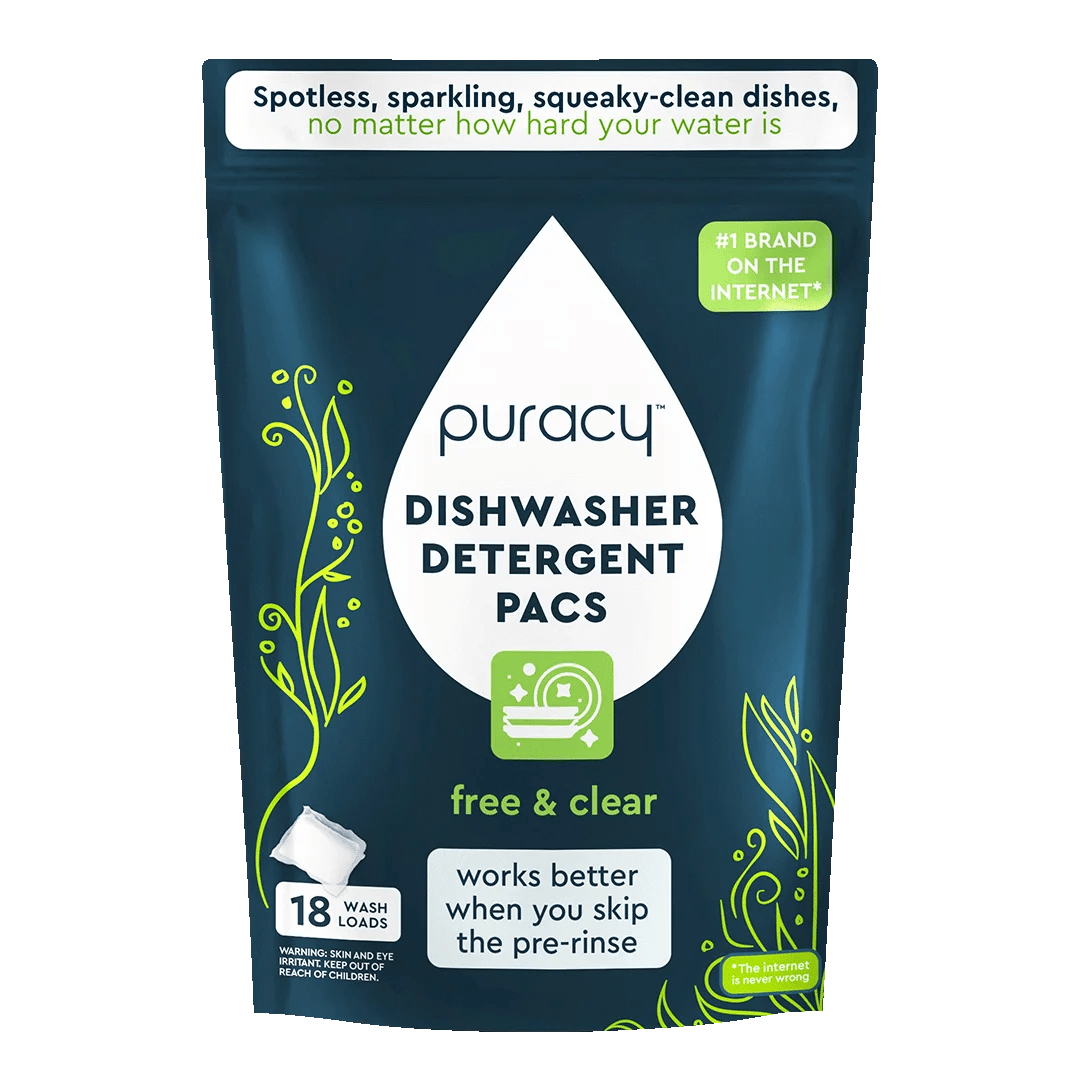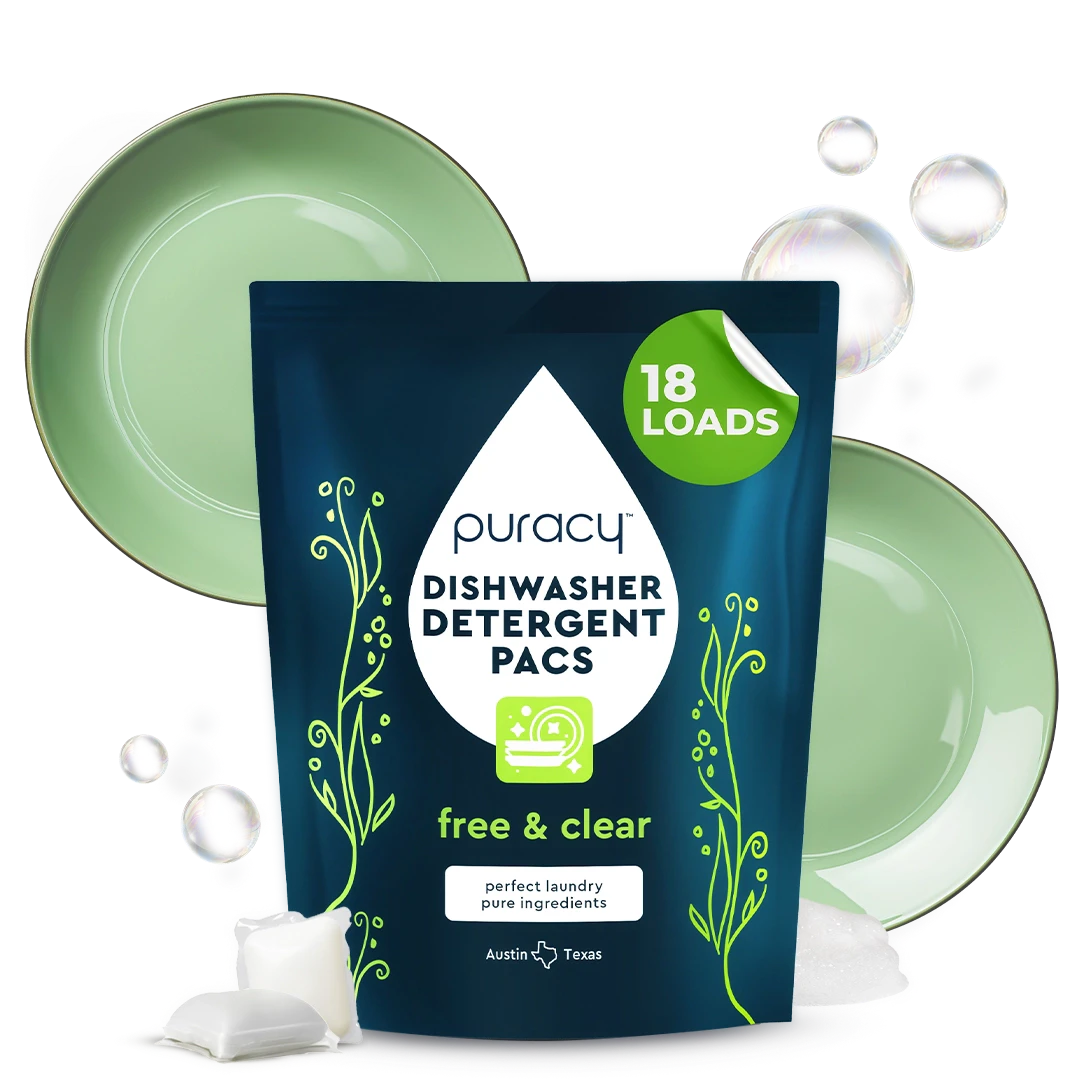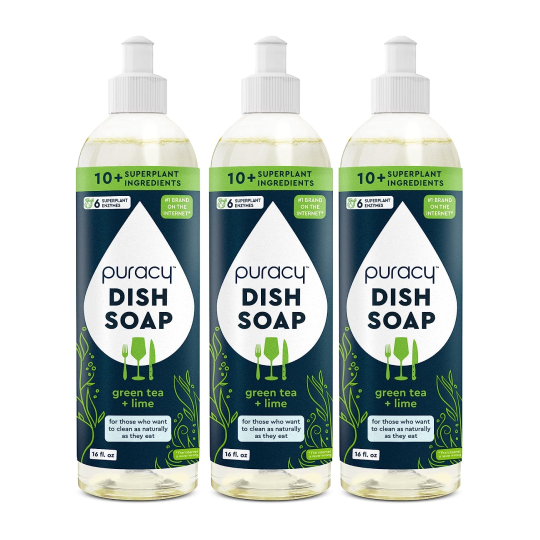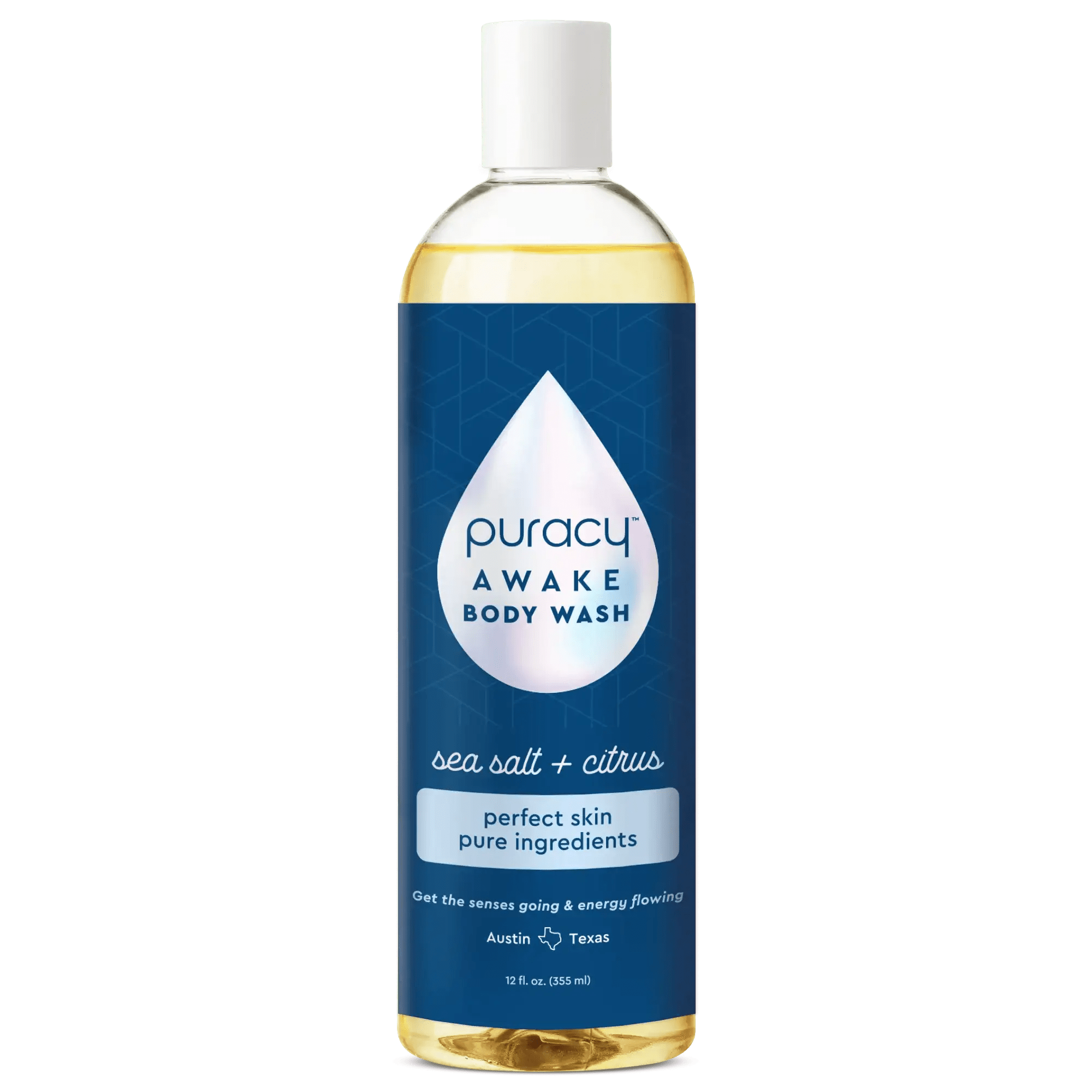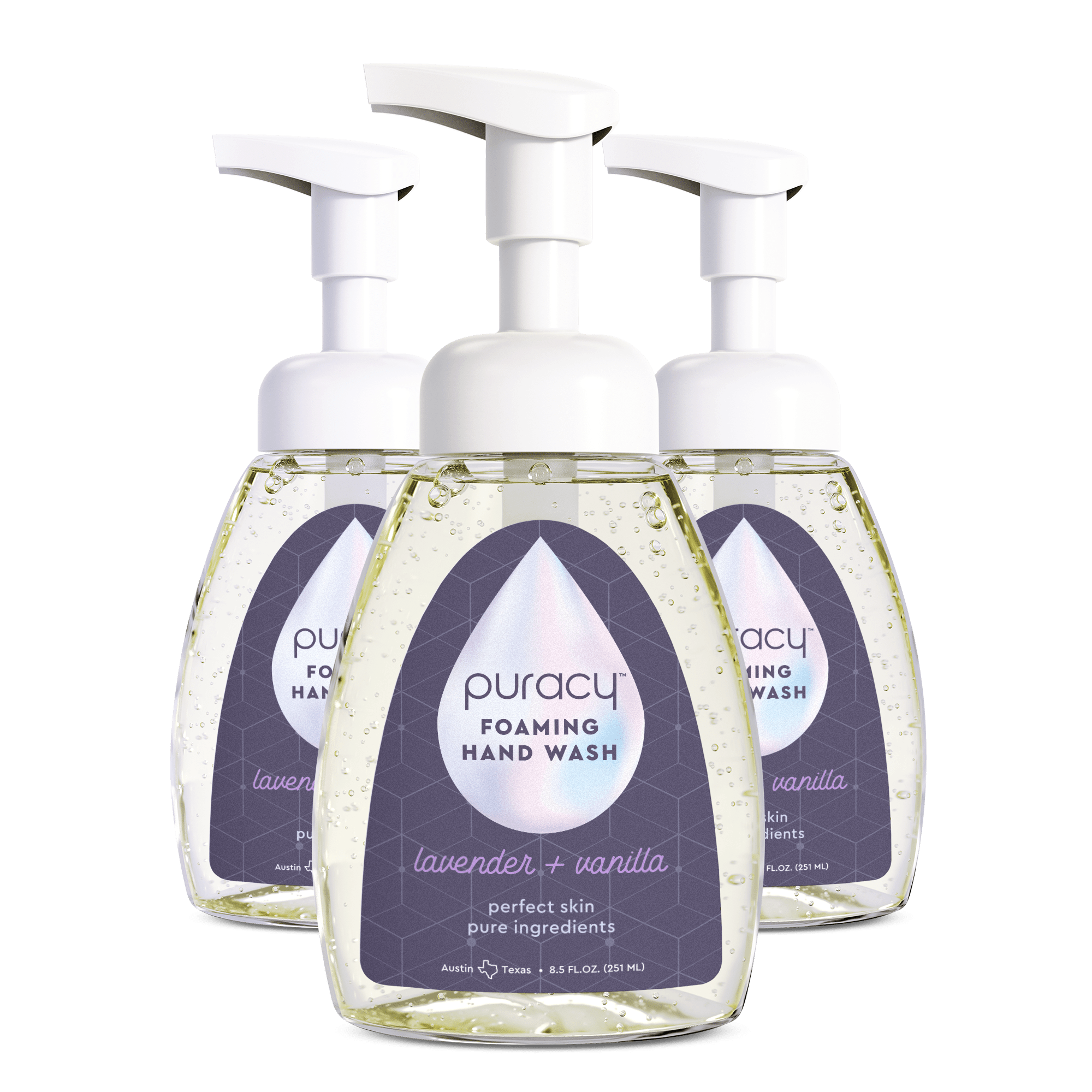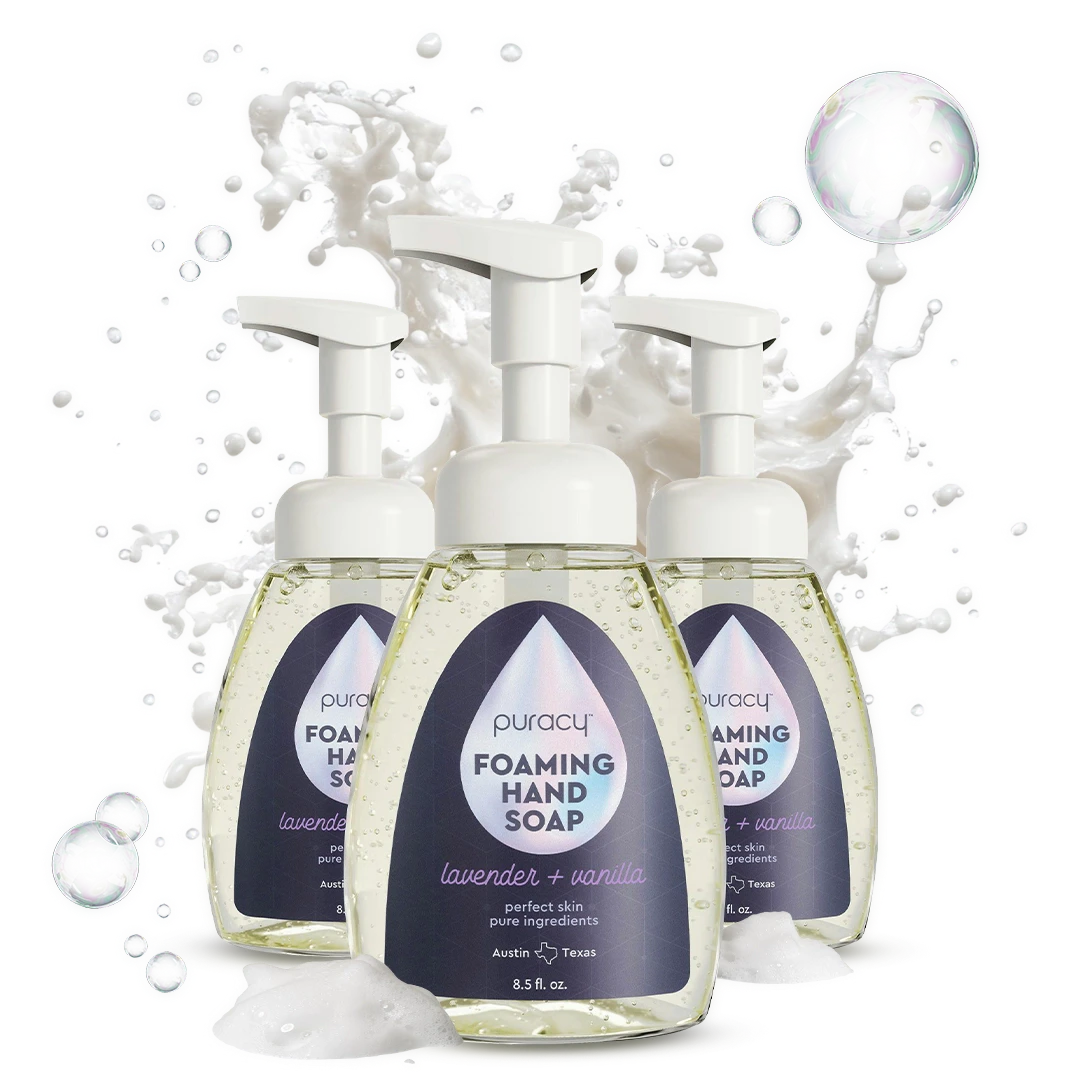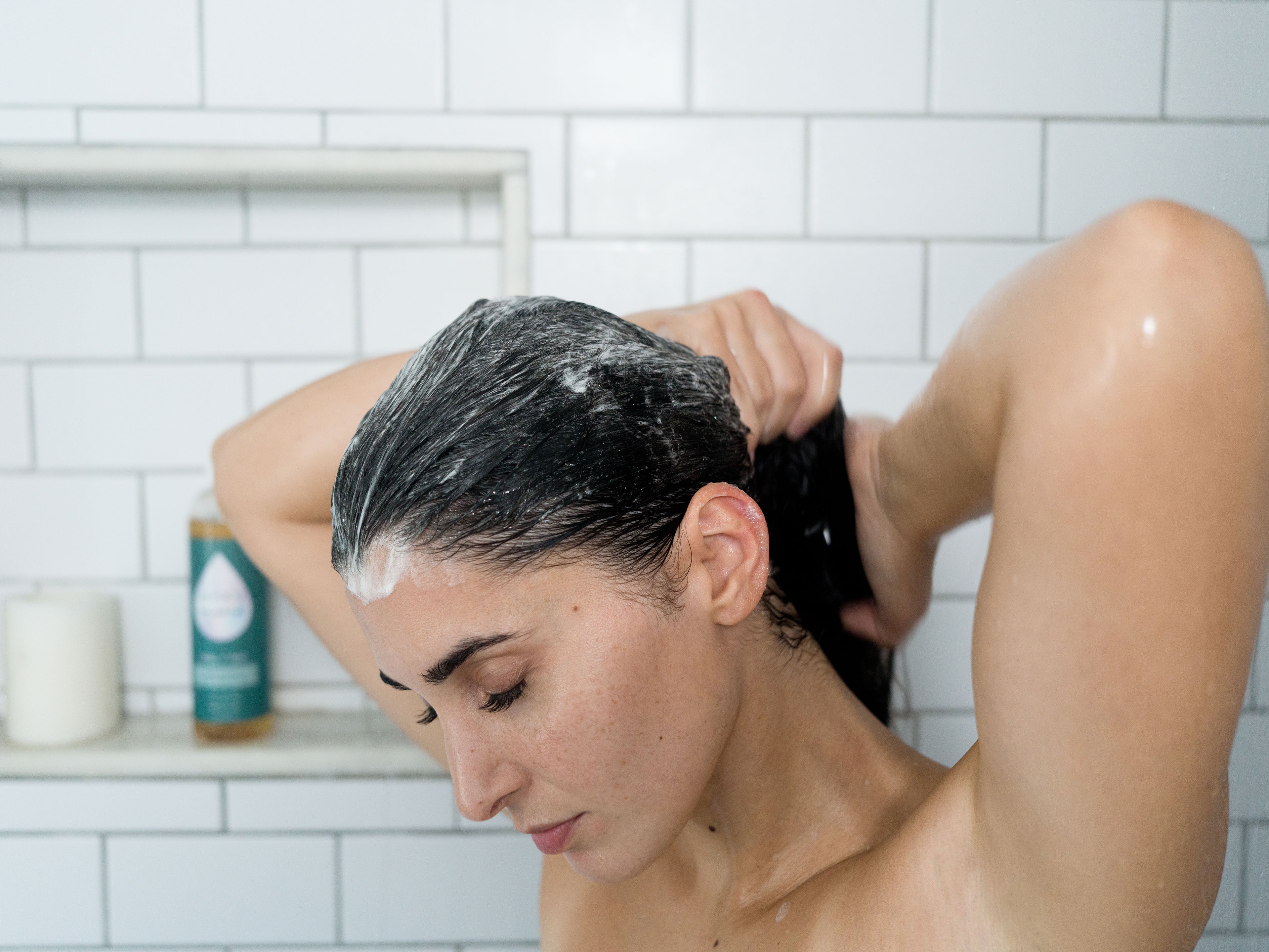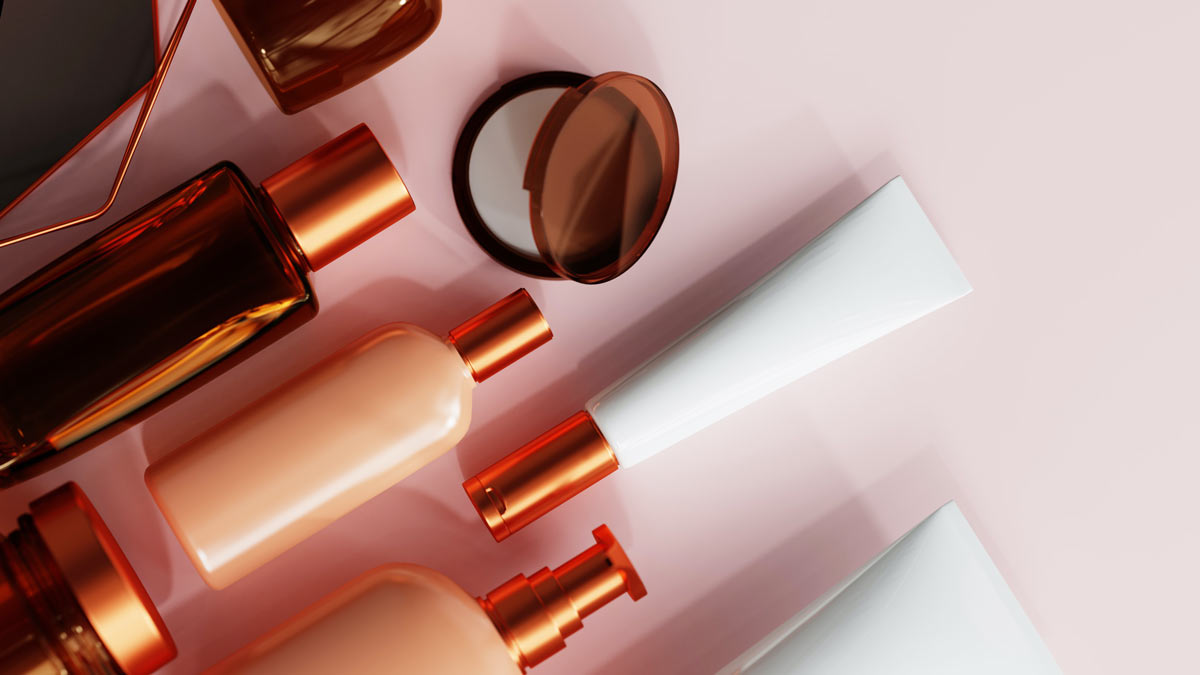
What Do Parabens Do in Shampoos?
Parabens serve as a synthetic preservative to make personal care products like shampoos last for years. It is derived from para-hydroxybenzoic acid (PHBA) with antimicrobial properties that work against the growth of mold and bacteria.
It is accepted worldwide as a low-cost ingredient to extend shelf life and stabilize the formula of the shampoo. It’s been used for over a century in preserving food, pharmaceuticals, and cosmetics.
The Food and Drug Association (FDA) says parabens are safe to use at the levels that they are currently at in personal care products. However, concerns have been raised on its effect on human health with some studies linking it to cancer.
Some research has found parabens in breast tumor but there is no conclusive evidence that it is the cause of the anomaly.
Common Forms of Parabens

Here are the most common forms of parabens in your shampoo and other personal care products:
The cosmetic industry’s most used antimicrobial paraben in this list, methylparaben has a score of 3-4 or moderately harzardous in the Environmental Working Group’s (EWG) scale.
Propylparaben scores 9 or highly hazardous on the EWG scale. It also poses high concern on endocrine disruption with moderate concerns for allergies and developmental and reproductive toxicity.
EWG scores ethylparaben a 3 or moderately hazardous with moderate concerns for allergies and immunotoxicity. There is strong evidence that it poses a concern as an endocrine disruptor in people.
Butylparaben scores worst among the parabens in this list with a 9 or with an extremely hazardous profile. There is moderate concern of its effects on allergies and immunotixicity, developmental and reproductive toxicity, and use restrictions.
Are Parabens Safe to Use?

Authorities such as the Cosmetic Ingredient Review (CIR) and the FDA reiterated in 2006 that parabens remain safe for use. The latter also allows multiple parabens in food processing and packaging as a preservative.
Meanwhile, the CIR concluded that it is safe to use in concentrations of up to 25%. While these regulatory bodies find no evidence to ban parabens at their current level of use, there is a growing body of studies that continue to suggest that they’re not safe.
Reasons Why Manufacturers Use Parabens:
For years, parabens have been used to prevent bacterial and mold growth. This makes your shampoo stable enough to withstand harsh conditions of manufacturing and storage.
Parabens are inexpensive, making them a cost-effective ingredient in the production of shampoos.
This makes them easy to incorporate into shampoos without affecting the color or scent of the product. They can also be used in combination with other preservatives and ingredients without causing any problems.
They are unlikely to cause skin irritation, which is important for a product that is used on the scalp. However, effects may still vary especially for people with sensitive skin.
This makes them suitable for use in shampoos that are designed for different hair types.
Reasons Why People May Need to Avoid Products with Parabens:
There is some concern that parabens may have harmful effects on the body over time, even though they are safe in the short term. There is currently no scientific consensus on the safety of parabens.
Some studies have shown that they can mimic the effects of estrogen, which is a hormone that plays a role in many bodily functions.
This has led to concerns that parabens could contribute to the development of breast cancer and other hormone-related diseases.
It can be released into the environment through wastewater treatment plants, and there is some concern that they may have a negative impact on aquatic life.
Many companies market their paraben-free shampoos as being healthier and more natural than shampoos that contain parabens. This marketing can influence people's decisions about which shampoo to buy.
Even if there is no definitive proof that parabens are harmful, it is still best to err on the side of caution and avoid using them or limit your exposure to them.
In addition, parabens are very persistent in the environment, meaning that they can stay in the body and the environment for long periods of time. This means that even if parabens are not harmful immediately, they could be harmful in the long term.
How Do We Get Exposed to Parabens?

The Centers for Disease Control and Prevention lists touching, swallowing, and eating products with parabens as the ways in which we are exposed to it. It may be in deodorants, make up, and various hair products.
- Dermal absorption remains the primary conduit of parabens in our bodies. When products like moisturizers are applied to the skin or shaving cream is used on facial hair, parabens can be absorbed into the body. Even if the product will be washed off, like in the form of shampoo and conditioner, it can still be absorbed. They will typically have lower concentrations of parabens than leave-on products, but since they are used more often, it can still be a significant root of absorption.
- We can also be exposed through ingestion. Parabens can also be ingested through food and beverages. They are used as preservatives in some food products, such as canned foods, dairy products, and baked goods. They can also be found in some beverages, such as soft drinks and energy drinks.
- Parabens can also be inhaled. They are released into the air when personal care products are used, and they can also be found in dust and other airborne particles.
Regulation of Parabens Around the World

The regulation of parabens is a complex issue. There is no scientific consensus on the safety of parabens, and there is a lack of data on the long-term effects of exposure to parabens. As a result, governments are still debating the best way to regulate parabens.
In the United States, manufacturers do not need an FDA approval for cosmetic products, including their ingredients, unless it concerns color additives. While ingredients like this are continued to be in review, its currently allowed for use in cosmetics at the levels that they are currently used.
The European Union has more stringent regulations on parabens. It banned the use of five parabens— isopropylparaben, isobutylparaben, benzylparaben, phenylparaben, and pentylparaben—in cosmetics. The ASEAN Cosmetic Committee also bans the use of these parabens
The EU has also set a maximum concentration for the use of propylparaben and butylparaben at 0.14% when used individually or when they’re used with other esters.
Other countries have different regulations on parabens. Canada proposes in its assessment draft that methylparaben, propylparaben, butylparaben, and iso-butylparaben may pose risks to human health.
Health and Environmental Concerns Related to Parabens

The research on the health and environmental risks of parabens is still ongoing. There is evidence suggesting that parabens may pose a risk to human health and the environment. While scientific evidence remains inconclusive, some people choose to avoid or limit their exposure to parabens by using products that are labeled as "paraben-free."
Here are some of the concerns surrounding the use of parabens:
Cancer research
Some studies have shown that parabens can mimic the effects of estrogen. Estrogen is a hormone that naturally occurs in our
There is evidence that suggests parabens may lead to an abnormal growth of breast cells. This leads to an increased risk of developing breast cancer. However, there still remains no conclusive evidence of parabens contributing to cancer as confirmed by the European Commission’s Scientific Committee for Consumer Safety.
Reproductive health
Parabens have been linked to reproductive problems in both men and women. In a study published in 2017, it was found that parabens contribute to the increase of abnormal sperm.
Meanwhile, a study found that high usage of cosmetics and personal care products exposed women to certain benzophenone and parabens that may lead to endometriosis.
Marine life
Parabens can disrupt the endocrine systems of aquatic organisms, which can lead to reproductive problems and developmental abnormalities.
They have been found in water, soil, and sediment. They can also bioaccumulate in aquatic organisms, meaning that they can build up in their tissues over time. Parabens are also found to be toxic to fish.
Skin issues
Parabens can cause a variety of skin issues, including:
Contact dermatitis is inflammation of the skin due to allergen or skin irritant. Symptoms include redness, itching, swelling, and blisters.
Eczema is a chronic skin condition that renders the skin dry, itchy, and inflamed. Parabens can aggravate symptoms of eczema.
Acne can be in the form of blackheads, whiteheads, pustules, and nodules. Parabens can clog pores and promote the growth of acne-causing bacteria, leading to acne breakouts.
People with sensitive skin are prone to skin irritation and any inflammation of the skin. Parabens can trigger these issues.
People with sensitive skin are more likely to develop skin allergy to parabens. However, anyone can develop a skin allergy to parabens, even if they have never had a reaction before.
Pregnancy
The American College of Obstetricians and Gynecologists (ACOG) recommends avoiding products that contain parabens, along with phthalates, oxybenzone, and triclosan.
Since parabens are known to have endocrine-disrupting potential, it has been the subject of numerous studies for pregnancy. Five types of parabens were detected in both the urine of mothers and in the blood found in the umbilical cord in a study conducted on 185 multi-ethnic women in New York.
ACOG does not recommend avoiding parabens altogether. However, it’s best to limit human exposure due to parabens’ effects on the endocrine system that may influence fetal development.
Is Paraben-Free Shampoo Better?

Whether paraben-free shampoo is better than your regular shampoo that contains it depends on individual needs and preferences.
As of today, parabens remain useful in preserving your shampoo and other hair products as a protection against mold and bacteria. It’s been used for over a century to preserve food, pharmaceuticals, and personal care products.
Here are some of the ways your paraben-free shampoo is be better than a regular shampoo:
- Gentle cleansing of the hair - it is known to clean without stripping off the hair and scalp off natural oils.
- More natural ingredients - plant extracts and essential oils also have antimicrobial properties that can replace parabens in shampoo.
- Less product build up - parabens can build up on hair and scalp which makes hair look and feel dull.
- Better for the environment - parabens are not easily biodegradable, which means they can persist in the environment for long periods of time.
Paraben Alternatives

Due to ongoing concerns around parabens, manufacturers have used alternatives to create their products:
This is a common paraben alternative that’s relatively gentle on the skin and scalp.
This is an inexpensive paraben alternative that’s also easy to produce. It is used in shampoos, food, and drinks.
Apart from being a preservative, it also acts as a fragrance ingredient in some shampoos. It is generally gentle but can be irritating to those with sensitive skin.
Plant extracts and essential oils have shown better antimicrobial activity than methylparaben.
Key Takeaways About Parabens

Parabens are preservatives used in many personal care products, including shampoos. They are effective and inexpensive, but some people avoid them due to concerns about their safety.
Here are some key takeaways:
- Parabens have been used for centuries to extend the shelf life of products.
- Some people avoid products with parabens due to concerns about their long-term health effects, environmental impact, and availability of paraben-free alternatives.
- We are exposed to parabens through dermal absorption, ingestion, and inhalation.
- The regulation of parabens varies from country to country. Some countries choose to ban or limit certain parabens.
- There is some evidence to suggest that parabens may pose a risk to human health and the environment, including cancer, reproductive problems, marine life toxicity, skin issues, allergy, and pregnancy risks.
If you are concerned about the safety of parabens, you can choose to use paraben-free shampoos. Many paraben-free shampoos and conditioners are available, and they often contain other natural preservatives that are just as effective.
